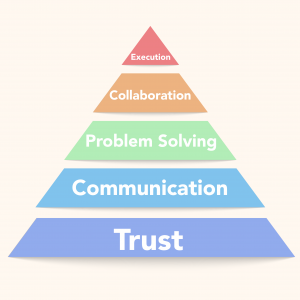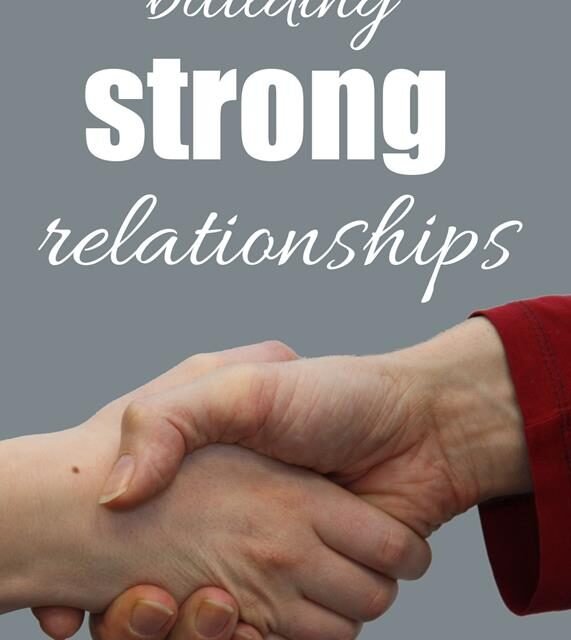introduction
How Can You Building a Stronger Relationship?
Building a Stronger Relationship is a journey that requires consistent effort, understanding, and communication. At the core of every strong relationship lies the foundation of trust and mutual respect. Trust is earned over time through honesty, transparency, and reliability. It involves being dependable and consistently showing up for your partner in both good times and bad.
Mutual respect means valuing each other’s opinions, feelings, and boundaries. It requires recognizing and appreciating the differences that make each person unique while finding common ground that strengthens the bond.
Communication is the lifeblood of a strong relationship. Open and honest dialogue helps to resolve conflicts, express needs, and share thoughts and feelings.It’s essential to listen actively to your partner, not just hearing their words but understanding their emotions and intentions. Effective communication also involves being vulnerable, sharing your fears, hopes, and dreams with your partner. This level of openness fosters intimacy and allows both partners to grow closer over time.
Another key element in building a strong relationship is spending quality time together. This doesn’t necessarily mean grand gestures or expensive outings; sometimes, the most meaningful moments are the simplest ones.
Whether it’s cooking dinner together, going for a walk, or just sitting in comfortable silence, these shared experiences create memories and deepen the connection between partners. Quality time also includes making an effort to understand and participate in each other’s interests and hobbies, which shows that you care about what makes your partner happy.

In addition to trust, respect, communication, and quality time, it’s important to maintain a sense of individuality within the relationship.
While it’s crucial to support each other, it’s equally important to have personal space and time for self-reflection. This balance ensures that each partner maintains their sense of self and continues to grow as an individual, which ultimately benefits the relationship. Encouraging each other’s personal growth and respecting each other’s space can prevent feelings of suffocation and allow the relationship to thrive.
Lastly, building a stronger relationship involves a commitment to work through challenges together. Every relationship faces obstacles, whether it’s dealing with external pressures, navigating differences, or overcoming personal struggles.
The key is to approach these challenges as a team, with a shared goal of finding solutions and growing stronger together. This requires patience, empathy, and a willingness to compromise. It’s important to remember that no relationship is perfect, and setbacks are a natural part of the journey. However, with dedication, love, and mutual support, it’s possible to overcome these challenges and build a relationship that stands the test of time.

A relationship, in its essence, is a complex and evolving connection between two individuals who choose to intertwine their lives, emotions, and experiences. It is a dynamic interplay of love, trust, respect, and commitment that requires continuous nurturing and adaptation. Relationships are not static; they change and grow as the individuals within them change and grow. This growth is often fueled by the shared experiences, both joyous and challenging, that shape the bond between partners. Each moment, whether a simple conversation over breakfast or a significant life event, adds layers to the relationship, deepening the connection and understanding between the two.
However, this growth is not always linear; it can be marked by phases of closeness and distance, harmony and conflict. It is during the challenging times that the strength of the relationship is truly tested. How partners navigate disagreements, misunderstandings, and external pressures can either reinforce the bond or create rifts. Effective communication becomes crucial in these moments, allowing both individuals to express their feelings, needs, and concerns openly without fear of judgment or rejection. Listening, truly listening, to one another with empathy and without the urge to immediately respond or defend oneself, fosters a deeper understanding and connection. This kind of communication also involves being vulnerable, which can be difficult but is necessary for creating genuine intimacy.
Moreover, a strong relationship is built on the foundation of mutual respect. Respect goes beyond simply being polite; it means valuing each other’s opinions, recognizing each other’s strengths and weaknesses, and treating each other as equals. It involves acknowledging the individuality of your partner and allowing them to be themselves without trying to change them to fit your expectations. This respect is what allows partners to grow together while also maintaining their own identities. When both individuals feel respected and valued, they are more likely to contribute positively to the relationship, creating a cycle of mutual appreciation and support.
Another vital component of a healthy relationship is trust. Trust is not something that can be demanded or given lightly; it must be earned through consistent actions over time. It involves being reliable, keeping promises, and being honest, even when the truth is difficult. Trust also means giving your partner the benefit of the doubt and not allowing past experiences or insecurities to undermine the present. When trust is established, it creates a sense of security and safety within the relationship, allowing both partners to be more open and vulnerable with each other.
In addition to these elements, it is important to recognize the role of personal growth within a relationship. While it is crucial to support each other’s growth and dreams, it is equally important to pursue your own goals and interests. Maintaining a sense of individuality ensures that you do not lose yourself in the relationship and that you continue to grow as a person. This balance between togetherness and independence is key to a healthy, lasting relationship. When both partners are fulfilled and happy as individuals, they are more likely to bring positivity and energy into the relationship.
Finally, a strong relationship is marked by resilience. No relationship is without its challenges, but it is how partners face these challenges that determines the strength of their bond. Resilience in a relationship means being able to bounce back from setbacks, learn from mistakes, and grow stronger together. It involves a commitment to working through difficulties, no matter how tough, and coming out the other side with a deeper connection and understanding. It also means supporting each other through the ups and downs of life, knowing that you are stronger together than apart.
In essence, a relationship is a journey, one that is filled with both joy and challenges. It is a partnership that requires ongoing effort, understanding, and a willingness to grow together. By focusing on communication, respect, trust, personal growth, and resilience, partners can build a relationship that is not only strong and lasting but also fulfilling and enriching for both individuals.
What Are the Effects of a Weak Relationship on Children’s Lives?
If a relationship isn’t strong, it can have a profound impact on children’s lives, deeply affecting their emotional and mental well-being. Constant conflicts, lack of communication, and absence of a harmonious environment can lead to feelings of insecurity, anxiety, and depression in children. This emotional distress can sometimes push them towards extreme thoughts, including self-harm or even suicide, as they struggle to cope with the turmoil at home. The instability in the relationship creates a sense of hopelessness in children, making it difficult for them to see a positive future.
Conclusion
In conclusion, building a stronger relationship is an ongoing process that requires effort, commitment, and a willingness to grow together.By focusing on trust, communication, respect, quality time, individuality, and resilience, you can create a bond that not only endures but also flourishes. The journey may be challenging at times, but the rewards of a strong, loving, and supportive relationship are well worth the effort.
you must watch 👀👎
How is the Symbiotic Relationship Between Yoga and Mind Healing the Key to Inner Wellness?





